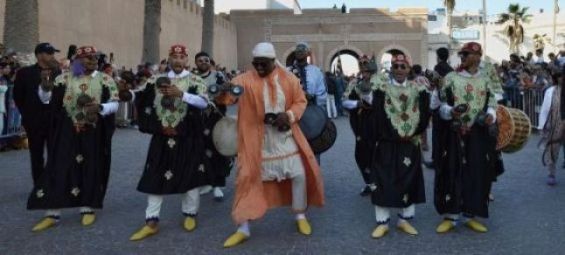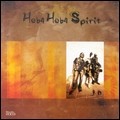The Gnaoua and World Music Festival, founded in 1999 during a period when Gnaoua culture faced neglect, has evolved into a globally recognized event. Neila Tazi, co-founder of this cultural festival, expressed her «profound pride and happiness» over its success, attributing its achievements to the unwavering loyalty of the public over the past 25 years.
She also extended her gratitude to the Gnaouas for their solidarity and continual evolution. Once limited to «riads and zaouïas», this marginalized brotherhood now performs on prominent stages, attracting crowds of 25,000 to 30,000 people—a transformation Tazi finds «truly impressive».
Human Rights Forum
Since 2012, the Gnaoua and World Music Festival has hosted the annual Human Rights Forum, providing a platform for discussions based on a specific theme. This year's theme, «Morocco, Spain, Portugal: A history with a future», featured notable figures from diverse backgrounds, including José Luis Rodríguez Zapatero, former head of the Spanish government.
Tazi praised the politician for highlighting the «importance of maintaining hope and fostering a dialogue of peace», mirroring the essence of the Gnaoua festival. She emphasized the festival's role as a «great space for social dialogue, encounters, and conviviality», spreading a message of hope and peace.
World Cup 2030 : A political, sporting, and diplomatic challenge
Discussing the upcoming challenges and opportunities, particularly with Morocco, Spain, and Portugal jointly hosting the World Cup in 2030, the forum underscored the importance of cooperation and solidarity.
 José Luis Rodriguez Zapatero and Neila Tazi. ©Yabiladi / Gwendydd Vaillié
José Luis Rodriguez Zapatero and Neila Tazi. ©Yabiladi / Gwendydd Vaillié
Tazi questioned «how the three countries would work together over the next six years to prepare for this significant event», which has the potential to reshape relations within the Mediterranean and continental space, between Africa, Europe, and beyond.
«It seems obvious to me that we need to start working on everything that can bring our three countries closer together : intellectually and artistically in particular. By organizing collaborations and bringing out our respective talents, we can build a thriving cultural exchange that will make a significant contribution to our success story in 2030».
Inclusion at the heart of Gnaoui values
Tazi highlighted that the festival's adherence to principles of equality has granted the Gnaouas international recognition. The inclusion of the Gnaoua brotherhood in the world's intangible heritage reflects «twenty years of work, militancy, commitment, determination, and conviction». She noted that the issue of human rights holds legitimate significance within the Gnaoua festival, underscoring its inclusiveness and open-mindedness.
For the Gnaoua brotherhood, the festival serves as an opportunity to gather, exchange ideas, and share moments of conviviality. Despite differences in origins, social categories, and languages, music unites participants emotionally and sincerely. Tazi cited the festival's parade, «featuring Morocco, Côte d'Ivoire, Spain, and Brazil, as an example of music's power to convey profound messages».
 ©Yabiladi / Gwendydd Vaillié
©Yabiladi / Gwendydd Vaillié
The festival's ethnic and cultural diversity is its essence. Tazi observed that «over 40 nationalities attend the event in Essaouira, transforming the city into a melting pot that attracts tourists and musicians from around the world». This year, 14 countries are represented in the program.
Neila Tazi concludes her statement by emphasizing Morocco's commitment, under the leadership of King Mohammed VI, to promoting the values of peace and equality. «I think that Morocco and all Moroccans (...) have the merit of continuing to carry this message firmly, resolutely, and voluntarily because this is the world we want. Culture has an essential role to play, and this is demonstrated here, very admirably, through the artists and their concerts», she concluded.





 chargement...
chargement...













